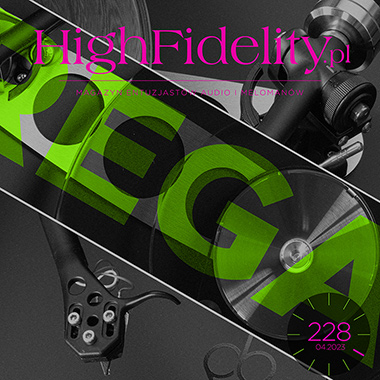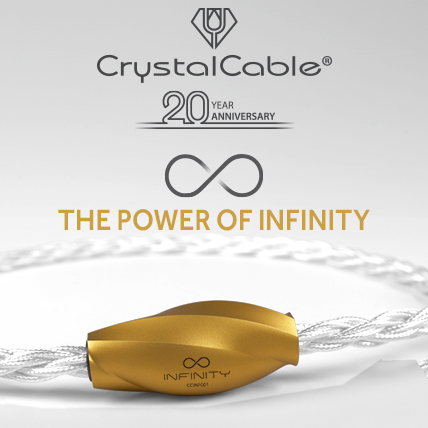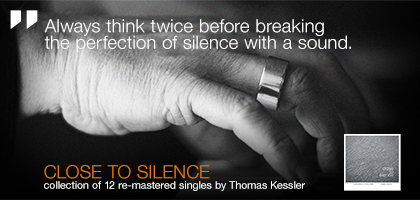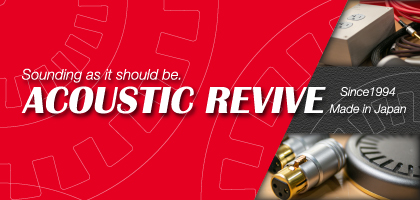No. 261 February 2026
- COVER REVIEW: TECHDAS Air Force IV ⸜ turntable » JAPAN
- RECORDING TECHNIQUE ⸜ music: 3M DIGITAL AUDIO MASTERING SYSTEM Part 2 || MUSIC » USA
- MUSIC ⸜ review: ARNE DOMNÉRUS, , Jazz At The Pawnshop, Proprius/AudioNautes Recordings MQA-CD Crystal Disc ⸜ 1977/2025 » SWEDEN / ITALY
- REVIEW: CIRCLE LABS AS100 ⸜ integrated amplifier » POLAND
- REVIEW: SHANLING EC Zero T ⸜ MQA-CD player • mobile » CHINA
- REVIEW: FEZZ AUDIO Sagita Prestige Evo & Olympia Evo Mono ⸜ linestage & power amplifier • monaural » POLAND
- MICRO REVIEW: ACOUSTIC REVIVE PS-DBLP ⸜ record clamp / stabilizer » JAPAN

|
Editorial
text WOJCIECH PACUŁA |
 |
No 228 May 1, 2023 |
|
MORE POWER!
As it turns out, it is not steelworks and power plants that are the biggest emitters of CO2 into the atmosphere, but residential buildings. As we read in the article by Radosław Omachel This is not a country for old houses, which was published in the Polityka weekly magazine at the turn of January and February, it is said that it accounts for as much as 36% of the total emission of this gas. With reservations, but still. And yet, as we read further, the EU aims to reduce total CO2 emissions by as much as 55% by 2030, with the reference point in 1990. Marcin Kowalczyk, the head of the climate team of the environmental organization WWF, mentioned by the author, says : "Without radical change, it will be impossible to meet the EU's emission reduction targets." 
⸜ Energy labels – new version • press mat. → EUROPA.eu To remedy this issue, in 2020 preparations began for changes to the EFPD (Energy Performance of Buildings Directive), and in 2022 a preliminary agreement was ready. Portal Teraz Środowisko says:
On February 9th the industrial committee of the European Parliament (ITRE) adopted its position on the law proposal. “Parliament's deal is good for people and the planet,” said Ciaran Cuffe, Irish member of the Greens/EFA party in the European Parliament, Parliament spokesman in the negotiations. In 2028, all public buildings are to be zero-emission, and so are all buildings that will be constructed since 2030 on, including single-family houses. How this whole thing will end is still unknown. There are many loopholes and exemptions in the act, and there are still voices on the one hand about not having a very progressive approach to the problem, and on the other about problems with subsidies for the poorest. In Poland, under-heated houses from the lowest group G make up to 14% of total number and their thermal modernization can cost up to PLN 221 billion. What does this mean for us? – Sooner or later, the energy revolution will also affect audiophiles. After all, converting electrical energy to acoustic energy is extremely inefficient. This means that in order to obtain the sound level needed to amplify a room large amounts of energy are needed - energy that we are supposed to save and maybe even ration in the future. The household appliances and consumer electronics industry has used markings for its products for years - washing machines, dishwashers, dryers, etc. For years, markings were used in which the basic category, eg A, were added pluses. On March 1st 2021, the European Union changed these markings to, as the Globenergia portal says, "make room for new, innovative technologies" (more → HERE). Thus, the old scale was reinstated - from A to G - in which only the most modern and energy-saving products belong to group A. 
⸜ SPEC RSA-V1 amplifier works in Class D. This type of audio components will be promoted in the future For a long time I've been wondering why audio devices don't carry such markings. There is probably a specific reason for this and one or even two laws or regulations, not to mention legal acts of a lesser calibre. Yet this lack is becoming more and more apparent. And sooner or later, that's my opinion, it's going to change. Because audio systems are extremely power-hungry. Tube devices will probably be the first to go. It is in them that a great part of the power is converted into heat. Unless we manage to qualify them to the group of additional radiators, they will be censored. Although a large part of this type of devices offers low output, but compared to transistor-based amplification systems, it is a black hole for current. But also solid-state, classic amplifiers cannot feel safe. Especially those working in class A. - What an irony, for us class A and also AB are the "better" ones, just like for the European Union, but in the context of power consumption they are class G. Besides, class G is also found in audio, we will buy such amplifiers from Arcam’s lineup. |
So the only "safe" choice seems to be class D. Low power consumption, low heat emission and lack of expensive heat sinks - these are the main advantages of such amplifiers. And if we add a switched-mode power supply to this, we have the winner of the competition held under the patronage of the European Union. And the speakers? - Exactly the same story. The lower the efficiency, the greater the current requirements for the amplifier. Therefore, high-efficiency designs, usually horn-shaped, come to the fore. Even large loudspeakers of this type require just a few watts to drive them, and in an extreme case - if in the hypothetical future I am talking about, the manufacturer wants to get a high energy class - a watt or even half a watt. In audiophile A.D. 2030, if we refer to the plans for the construction industry, we would have a matchbox-sized class D amplifier, probably glued to the speaker magnet, and horn loudspeakers. Source? - It would make sense to use a turntable powered by a crank, but it will probably be one of those "loopholes" in the system, forced by corporations controlling societies with their products - Facebook, Google, Tweeter or Instagram. In a few years, they will be so large that they will also control entire countries and even continents. For them, this type of a loophole will be "obvious", even though server rooms consume an incredible amount of electricity, and hundreds of hectares of forest are cut down for their ever-expanding halls, even in such a "green" country as Sweden. But maybe there is hope for us. Although we will probably pay penalties for harmful emissions, included in the prices of products with low energy efficiency, I can imagine a scenario in which this "personal harm" can be eliminated by specific actions. I imagine a scoring system. We go to the gym, where all the machines are connected to generators, and there we produce some clean electricity. We want to ride a bike - great! Instead of a motor drive, we will have a large generator and a battery from which we can "drain" energy to the general system, for which we will be allowed to listen to music for three minutes. And so on. 
⸜ „High Fidelity” Best Sound Award for hORNS Universum speakers, Munch High End Show 2014 Since audio will still be extremely low in the EU hierarchy, with a G marking or worse, we will have to limit ourselves to short listening sessions. Thus, the tracks will once again be as long as they were in the days of 78 rpm records - two and a half minutes will be the gold standard. Pieces of groups playing neononeoprogressive rock will have to be listened to in parts. And operas only through selected, not too long, arias. Or we will have to work even harder in the gym. In the future, a discount can also be obtained by installing an additional photovoltaic panel, intended only for audio systems. This will open the door to new markets for manufacturers in our industry. "Audiophile solar" - it sounds proud. The cables connecting it to the wave-guide will also have to undergo listening tests. We will be able to talk about panels offering "dark" or "warm", and maybe even in a "lit" way. Meetings of the Krakow Sonic Society will have to take place during the day - it will be the only way. I see one more advantage in all this – we will get closer and love our animals even more. Is it so hard to think of a hamster running around in a wheel whose axis is coupled to a generator? Since this animal does not run on cue, and any punishments for our smaller brothers are hard to think of, we will depend on it. So you will have to do everything to make him feel really loved, well-fed and well-groomed. Happy and physically fit, once a week will give us a listen to a song, maybe even two. It will also be a good time to stop separating these animals from each other, it's inhumane, and make friends with two, three, maybe even five rodents living together. Because it means two, three or even five times as much electricity. I wonder if their temperament and personality will determine the sound quality? The "thick" and "thin", "bright" and "dark", "energetic" and "lazy" sound? - yes, they may offer us that. At the audio shows, we will find a separate section in which different species of hamsters with different characters will be presented, which will fit into a particular audio system. It will be a real "Animals Audio Show". The energy revolution will also be a time when we will need other audiophiles. Solo auditions will be rare and limited in time. If we want to compare two tracks from different releases, we'll need extra points. Is it so hard to imagine stationary bicycles in the audio service? Instead of a load, there will be a generator that powers our system. One person generates electricity, the other listens, and then the other way around. The more meeting participants, the better. In this way, we will solve two of the plagues of modern times - loneliness and obesity. 
⸜ A scheme of the "hamster" installation Although we started this article in a minor mood, counting percentages and money, we can finish it with a smile on our faces. Audio will be banned, of course, because it's energy inefficient. Only smartphones and headphones will remain in the mainstream. Alphabet Group Corporations: (formerly Google), Amazon, Meta Platforms (formerly Facebook), Apple and sometimes Microsoft (as Wikipedia says: Gang of Four, Big Five or Big Tech - acronyms or names used to indicate four or five US multinational computer companies and programming services providing remote [online] services, which have dominated cyberspace since around 2010) will push through a law requiring the use of a smartphone at least eight hours a day and two at night. For us, it will be a time of socialization with friends, cooperation with our wards, smaller brothers, and a great time for health. I imagine that in reaction to these bans audiophile underground will arise, where you will be able to listen to a tube or transistor amplifier working in class A, and maybe even large, multi-driver loudspeakers of classic design. Audiophile catacombs? - why not? - archaeologists dig up even stranger things. Such activities will of course require the installation of additional panels, even more meetings, etc. So even this will be good for us. The future for the audio industry seems better than anything we have experienced so far. It will truly be a brave new world! Even if only one envisioned for the April Fool's Day :) ● WOJCIECH PACUŁA |
About Us |
We cooperate |
Patrons |
|
Our reviewers regularly contribute to “Enjoy the Music.com”, “Positive-Feedback.com”, “HiFiStatement.net” and “Hi-Fi Choice & Home Cinema. Edycja Polska” . "High Fidelity" is a monthly magazine dedicated to high quality sound. It has been published since May 1st, 2004. Up until October 2008, the magazine was called "High Fidelity OnLine", but since November 2008 it has been registered under the new title. "High Fidelity" is an online magazine, i.e. it is only published on the web. For the last few years it has been published both in Polish and in English. Thanks to our English section, the magazine has now a worldwide reach - statistics show that we have readers from almost every country in the world. Once a year, we prepare a printed edition of one of reviews published online. This unique, limited collector's edition is given to the visitors of the Audio Show in Warsaw, Poland, held in November of each year. For years, "High Fidelity" has been cooperating with other audio magazines, including “Enjoy the Music.com” and “Positive-Feedback.com” in the U.S. and “HiFiStatement.net” in Germany. Our reviews have also been published by “6moons.com”. You can contact any of our contributors by clicking his email address on our CONTACT page. |
 



|
   |







 OR SOME TIME NOW, I HAVE HAD THE IMPRESSION that there is more and more talk about the imminent, administratively enforced thermal modernization of all buildings in the European Union. The EU is, after the United States and China, the third largest emitter of carbon dioxide. Which, given Europe's ambitious environmental goals, is unacceptable in the long term.
OR SOME TIME NOW, I HAVE HAD THE IMPRESSION that there is more and more talk about the imminent, administratively enforced thermal modernization of all buildings in the European Union. The EU is, after the United States and China, the third largest emitter of carbon dioxide. Which, given Europe's ambitious environmental goals, is unacceptable in the long term. At the heart of the proposed amendments to the EPBD are the so-called minimum energy performance standards (Minimum Energy Performance Standards, MEPS), which require the renovation of buildings with the worst energy performance in Europe. According to the assumptions of the European Commission, all buildings owned by public institutions should achieve at least class "F" by January 2027, and class "E" by January 2030.
At the heart of the proposed amendments to the EPBD are the so-called minimum energy performance standards (Minimum Energy Performance Standards, MEPS), which require the renovation of buildings with the worst energy performance in Europe. According to the assumptions of the European Commission, all buildings owned by public institutions should achieve at least class "F" by January 2027, and class "E" by January 2030.


